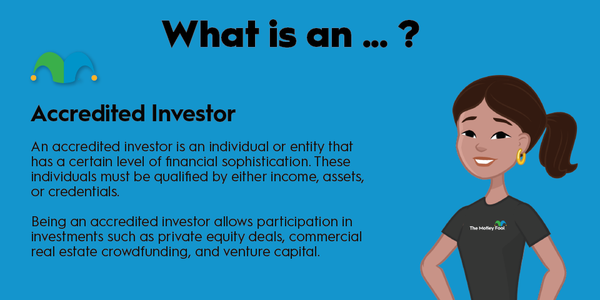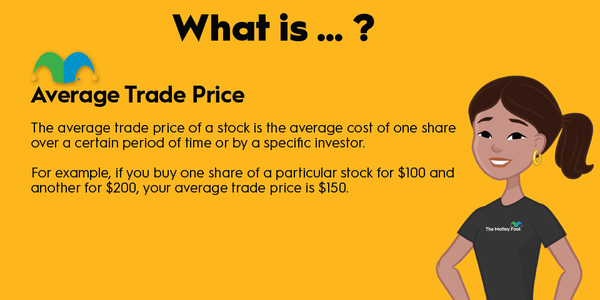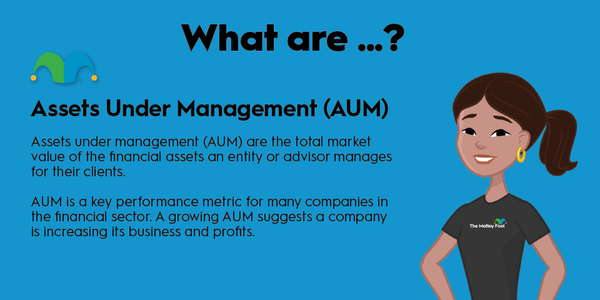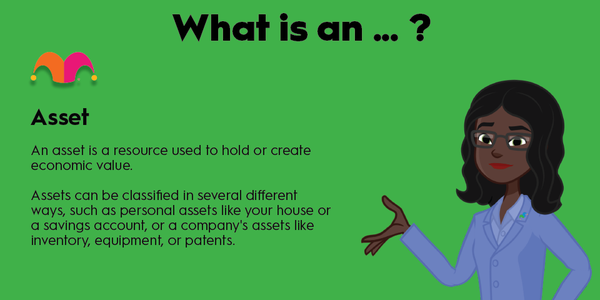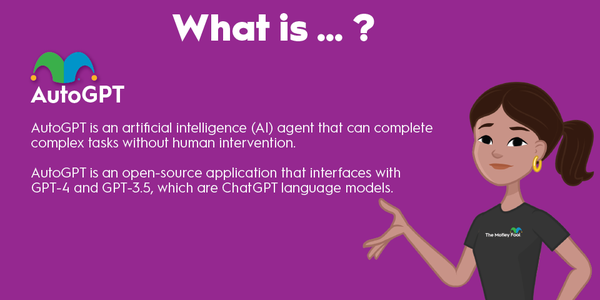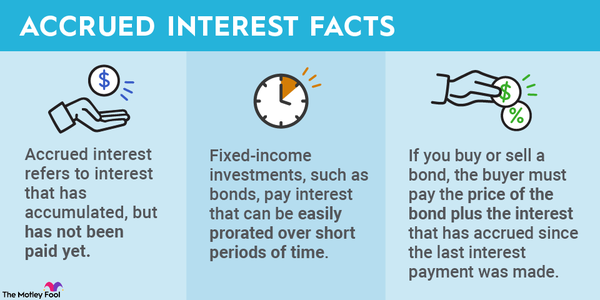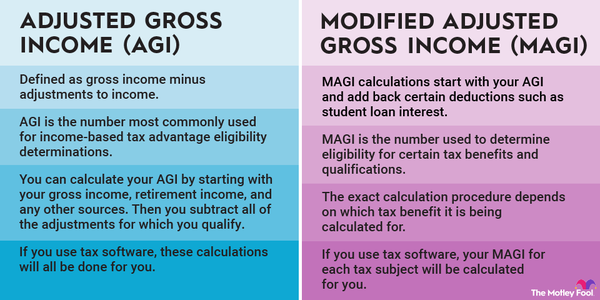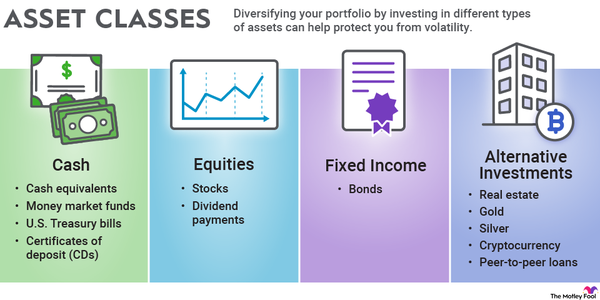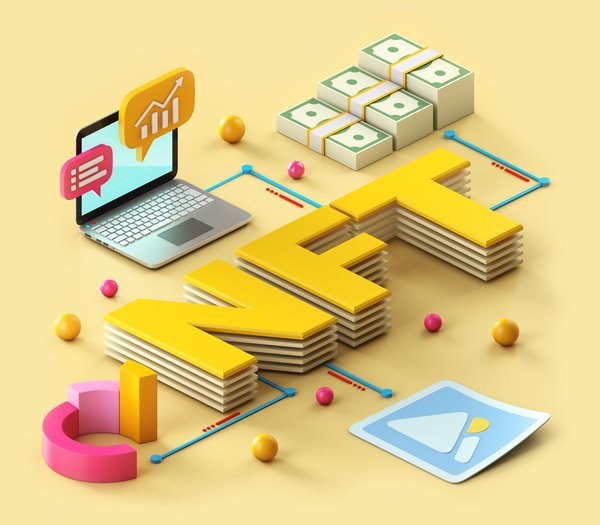Artificial intelligence uses machines -- generally, computers -- to mimic human intelligence. Although there are debates about its utility, AI has become common in applications that range from the creation of generative chatbots to the selections displayed in your Netflix queue. Read on to learn more about this rapidly growing field and what it might mean for your investment portfolio.
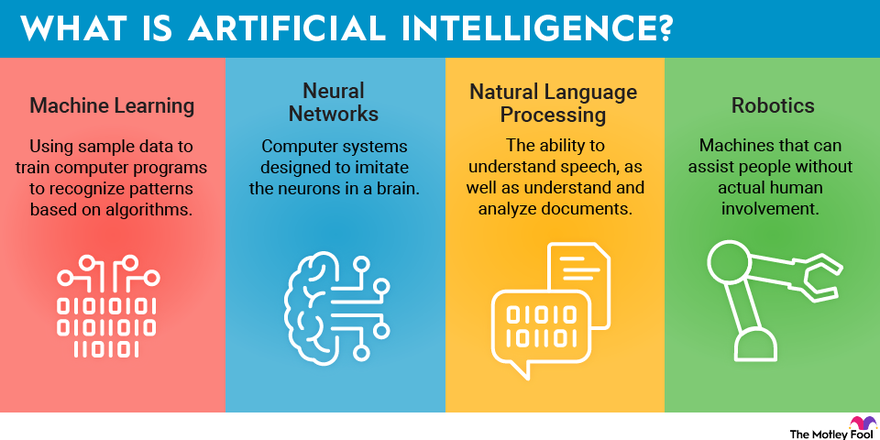
What is it?
What is artificial intelligence?
Once a staple of science fiction -- think, Frankenstein -- artificial intelligence, or AI, is commonly used by billions of people. Although there’s no set definition, it’s generally agreed that artificial intelligence is the use of computers to mimic human judgment. These days, it’s used by almost every industry, often in ways that are too subtle to be noticed.
Categories
Categories of artificial intelligence
There are three basic categories of artificial intelligence:
- Narrow AI: Artificial intelligence can be built for very specific tasks, such as playing a game, keeping spam out of your inbox, helping you find a nearby restaurant with your smartphone, or even driving your car.
- General AI: With more resemblance to human capabilities, general artificial intelligence is a more advanced form that can involve visual and language processing, contextual understanding, and the ability to adapt to a range of tasks. It’s considered to be far off in the future.
- Artificial super AI: Imagine a machine that’s smarter than you -- much smarter. Artificial superintelligence is still only a theory, but advances in nascent AI are raising interesting and troubling questions for the future of humanity.
Types
Types of artificial intelligence
The proliferation of data and other online resources has caused an explosion in the use of artificial intelligence. But not all AI is equal. We'll look at four different types of artificial intelligence to give you an idea of how it's developed and how AI is being used.
Machine Learning
1. Machine learning
The idea behind machine learning is to use sample data to train computer programs to recognize patterns based on algorithms. Machine learning programs allow computers to do things without being programmed. The efficiency of machine learning generally depends on the algorithm.
A relatively common use of machine learning happens if you have a Pinterest (PINS -0.59%) account. The image-sharing and social media website began using machine learning with the acquisition of Kosei in 2015; since then, it's employed machine learning to help users discover content, moderate spam, direct advertising, and target newsletters.
2. Neural networks
Neural networks are computer systems designed to imitate the neurons in a brain. The networks are designed to learn via processing examples, using a well-understood input and a predicted result. As the network gains experience, its output mirrors the targeted result.
Alphabet (GOOGL -2.09%)(GOOG -2.05%), the parent company of search giant Google, for example, has been researching neural networks since 2014. Its DeepMind project seeks to use artificial intelligence to build even more powerful algorithms. The project is best known for its neural network that learned how to play 49 different Atari video games by viewing pixels and a score on a screen.
Natural Language Processing (NLP)
3. Natural language processing
Natural language processing is often confused with simple speech recognition. It certainly includes the ability to understand speech, but it involves more than simple audio-to-text (and vice versa) translations. One of the goals of natural language processing is the design of a computer to fully understand and analyze documents.
Microsoft (MSFT -2.4%) has become a major player in the field since investing $13 billion in OpenAI, the startup that created ChatGPT. Its Azure is the sole cloud provider for the generative chatbot and offers sentiment analysis, text classification, and text summarization, among others.
4. Robotics
The use of robots dates back hundreds of years, but machines that could assist people without actual human involvement are considerably newer. One of the first autonomous robots was installed in 1961 and used to lift hot pieces of metal from a machine. Since then, robots have become far more common. They're used in applications ranging from space exploration to vacuuming your carpet.
Robotics has evolved beyond industrial uses and are used in a wide range of applications, including medicine. The da Vinci system created by Intuitive Surgical (ISRG -0.39%), for example, is used for a wide range of procedures, including cardiac valve, prostate, and gynecological surgeries.
Related investing topics
Importance of artificial intelligence
Importance of artificial intelligence
Obviously, artificial intelligence has enormous ramifications for almost every human endeavor that you can imagine -- including investing. Imagine a robo-advisor that automatically tracks your portfolio and maximizes its value by making immediate and personalized adjustments based on corporate earnings calls, currency fluctuations, or even weather forecasts.
It’s a tempting vision, but one with downsides. Artificial intelligence costs money, making it (for now) the province of wealthy corporations. Even AI designers can’t anticipate every potential pitfall. And, of course, there’s always the end-of-the-world scenario where AI winds up deciding that humans just aren’t worth the trouble (think “The Matrix” or “Terminator” movies).
Many questions related to AI are just now being asked; they may be decades from being answered. But it’s a good idea to keep track of this megatrend, which stands to affect the world in ways that we likely can’t yet imagine.


